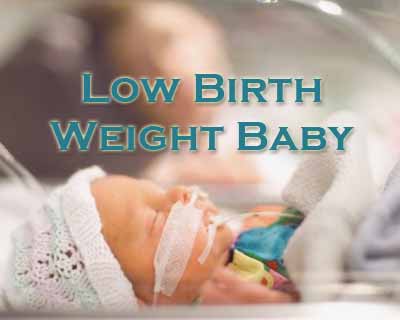- Home
- Editorial
- News
- Practice Guidelines
- Anesthesiology Guidelines
- Cancer Guidelines
- Cardiac Sciences Guidelines
- Critical Care Guidelines
- Dentistry Guidelines
- Dermatology Guidelines
- Diabetes and Endo Guidelines
- Diagnostics Guidelines
- ENT Guidelines
- Featured Practice Guidelines
- Gastroenterology Guidelines
- Geriatrics Guidelines
- Medicine Guidelines
- Nephrology Guidelines
- Neurosciences Guidelines
- Obs and Gynae Guidelines
- Ophthalmology Guidelines
- Orthopaedics Guidelines
- Paediatrics Guidelines
- Psychiatry Guidelines
- Pulmonology Guidelines
- Radiology Guidelines
- Surgery Guidelines
- Urology Guidelines
Maternal gastric bypass may be associated with low birth weight babies

Women who undergo gastric bypass surgery for weight loss risk giving birth to babies that are small or have lower average birth weights.
Women who undergo gastric bypass surgery for weight loss risk giving birth to babies that are small or have lower average birth weights. The work is presented at the 55th Annual European Society for Paediatric Endocrinology Meeting. The findings could lead to different advice and clinical care for pregnant women who have undergone gastric bypass surgery.
Gastric bypass surgery is used to treat people who are severely obese (a body mass index greater than 40kg/m2); food is re-routed past most of the stomach, meaning less is digested. The procedure can lead to up to 70% loss of excess body weight within two years, but is associated with an increased vulnerability to vitamin and mineral deficiencies, as it reduces the body's ability to absorb micronutrients.
Women treated with gastric bypass surgery are advised to wait 18 months after the procedure before trying to become pregnant in order to establish a stable, healthy weight. They must also follow a daily multivitamin supplementation regime and receive regular clinical follow up before, during and after the pregnancy.
Despite these precautions, a team of clinical researchers at the Department of Paediatrics, University Hospital, Angers, France found that the birth-weight of babies born to gastric bypass mothers was on average 0.34 kg lower than average, and that 23% of neonates were small for their gestational age. The team studied 56 newborns born to gastric bypass mothers who had waited an average of 32 months between surgery and pregnancy, and compared results to 56 controls.
"Maternal obesity can lead to health conditions for the newborn, such as high birth weight and low blood sugar. It can also cause birthing complications, and gastric bypass can prevent these," says Maxime Gerard, lead researcher of the study. "But our study showed that gastric bypass could have other effects on newborns."
They team saw that, despite supplementation, a proportion of gastric bypass mothers were deficient in key nutrients during pregnancy, such as calcium and zinc. Analysis of the newborns showed that they also suffered lower than average levels of the same nutrients.
"These maternal nutrient deficiencies may be the reason for the same deficiencies and low birth weights seen in the newborns," continues Gerard. "One of our next steps will be to confirm this and determine its impact."
The team also analysed newborn birth weight in relation to the mothers' weight, and determined that birth weight was related to the variation in the mother's weight between the surgery and pregnancy, rather than her weight during pregnancy.
Only preliminary findings were presented, and as the study continues the team's next key step is to determine if low birth weights have long term consequences for the children in the study. They would also like to establish optimal nutritional supplementation for mothers who have undergone gastric bypass surgery, to ensure they do not suffer from nutritional deficiencies during pregnancy.

Disclaimer: This site is primarily intended for healthcare professionals. Any content/information on this website does not replace the advice of medical and/or health professionals and should not be construed as medical/diagnostic advice/endorsement or prescription. Use of this site is subject to our terms of use, privacy policy, advertisement policy. © 2020 Minerva Medical Treatment Pvt Ltd